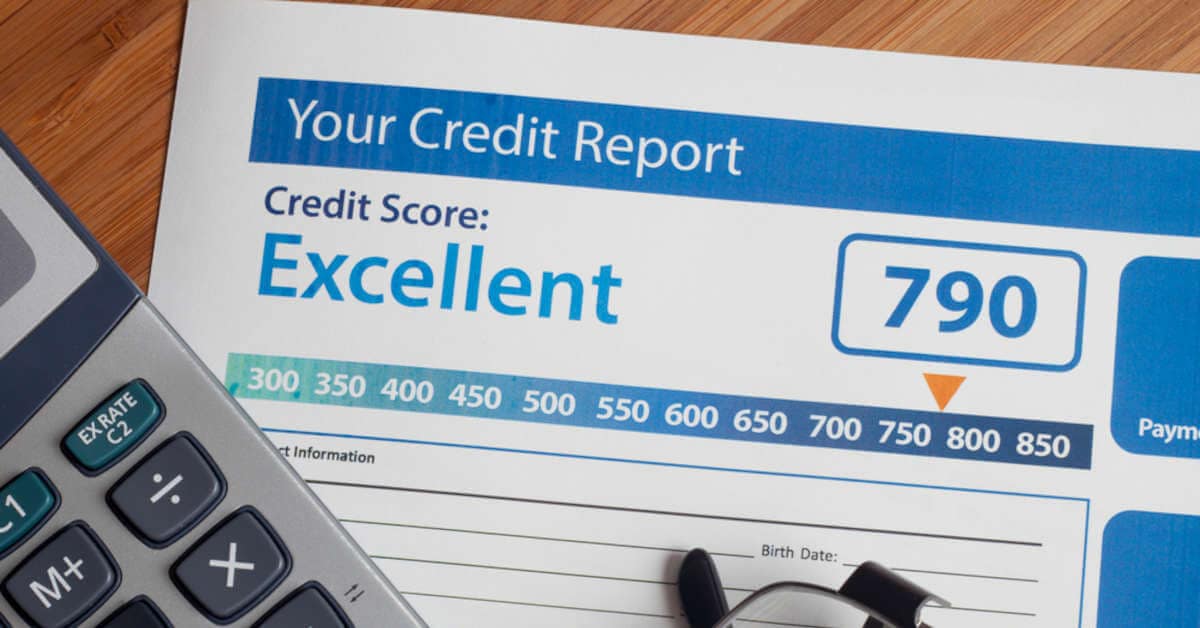This post will tell you everything you need to know about rebuilding credit in Canada for a future mortgage.
A great credit score can be an important determining factor when qualifying for mortgage and interest rates.
However, many factors go into building a good credit score, which can be difficult for some Canadians.
Improving your credit score can make it easier to purchase a home, get an auto loan or access lines of credit. This can be done without extensive effort.
Let’s look at some factors that cause a lower credit score, how to improve it, and how long it takes to rebuild credit.
What is a good credit score to get approved for a mortgage?
The credit score range in Canada is between 300 and 900. A good credit score opens up more lending options with competitive interest rates.
Aim for a credit score of 680 or higher for the best mortgage rate. Some products require a credit score of 700 or higher.
It is possible to qualify for a mortgage with a credit score below 680. You may be offered a higher interest rate or/and a smaller loan amount.
What is a Bad Credit?
Bad credit happens when you have missed payments on your debt (such as your mortgage, credit card, or student loan payments) or used a credit you don’t pay back (such as an overdraft from your bank account or an unpaid utility bill). This can cause your credit score to drop, and it can make it more difficult for you to get approved for future mortgages.
How are credit scores calculated?
Many factors are considered by credit bureaus when determining your credit rating.
The main factors that affect your credit score are:
- Payment History: Your credit payment history
- Credit utilization: Your used credit vs. your available credit
- The length of your credit history
- Number of inquiries into your credit file
- Type of credit
- Public Records such as Liens and Judgements.
Credit bureaus gather information on consumer creditworthiness from various sources, including banks, credit card firms, credit unions, mobile service providers and collection agencies. When a consumer requests credit, the lending institution requests the information from the credit bureau. A credit score, as well as credit history, is used to determine the individual’s creditworthiness.
Is It Possible To Repair Your Credit Score?
Credit repair isn’t fixing your credit score; it’s rebuilding and improving your credit over time.
Credit information cannot be fixed; it is there for the long haul. If the information in your credit report is accurate, you cannot alter or remove it.
There may be an error on your credit report, such as a loan listed as delinquent when it is paid up. In that case, you should request for the error to be rectified.
However, suppose you missed payments and were reported to the credit bureaus. In that case, no service can remove that information from your credit history.
Sure, you can improve your credit score.
Establishing a positive credit history is the most effective way to rebuild your credit.
Most lenders consider anything less than 660 as having “not-so-great” credit scores.
People frequently encounter credit repair scams when they seek to repair their credit scores. These organizations promise to fix bad credit scores instantly and delete negative information from their credit reports, which is not possible.
Good credit can be just as challenging to obtain as anything of value. It requires time and effort to develop, but it’s worth preserving once you have it.
How long does it take to Rebuild Your Credit Score After It Drops?
Credit scores are unique to each consumer, making it challenging to estimate the time needed to rebuild credit and increase the score.
Some activities have a more significant negative impact on your credit score than others. For instance, missing a payment or being late on one payment will have less impact than having your account sent to collections due to multiple missed payments.
If your credit score takes a hit, you can still rebuild your credit even after bankruptcy or a consumer proposal. It may take a few years to rebuild your credit after an insolvency, but you will see some improvement with on-time payments.
In most provinces, the bankruptcy record remains on your credit report six years after discharge. A person who declares bankruptcy more than once will have the defaults recorded on their credit report for 14 years.
Even if you cannot achieve a ‘great’ credit score immediately, you can start rebuilding your credit immediately by creating positive credit information in your report, which will eventually result in a good credit score with time and effort.
How to Improve Your Credit Score to Get a Better Mortgage Interest Rate
If you have bad credit, you can improve it by paying off old debt and opening new, responsible accounts. Paying off old debt might sound obvious, but it’s an effective way to improve your credit score. The sooner you pay off old debt, the sooner it disappears from your credit report. You can also open new, responsible accounts to show lenders you can handle multiple accounts. A couple of small debts, like a utility bill and a cellphone bill, can improve your credit score. Still, a single large purchase, like a new car, can actually hurt your credit score. So consider opening new accounts that are relatively small. If you have a large, unpaid debt, you’ll have to pay it off before opening new accounts to repair your credit, but there are ways to do that.
Below are more steps you can take to improve your credit score:
- Pay-off Charge-Offs/Collections
- Consolidate Debt
- Having a secured credit card can help you build a positive credit history.
- Concentrate on keeping at least your minimum monthly payments up to date.
- Keep your credit usage rate under 30% of your credit limit.
- Have a minimum of two tradelines
Pay-off Charge-Offs/Collections
A charge-off happens when you miss the payment for a certain period of time, generally 4 to 6 months. The creditor will close the account and write off the account as a loss. Sometimes it is transferred to a collection agency. However, you are still liable for the amount you owe.
You can pay it off and improve your credit score. When you pay it off, ensure the collection agency will report this to the credit bureau, improving your credit score by decreasing the negative impact on your credit report.
Consolidate Debt
Suppose your high-interest debts, like credit cards or personal lines of credit, are maxing out. In that case, you can improve your credit score by consolidating those debts into a single, lower-interest loan. By lowering credit utilization, the credit score should go up.
If you have a house with equity, you can refinance your mortgage and pay off the high-interest debts. Because mortgages are secured with real property, the interest rate is much lower, around 4% to 7%, compared to the credit card interest being 13% to 23+%.
Having a secured credit card can help you build a positive credit history.
Suppose you’re having trouble obtaining a loan or a new credit card because of a bad credit score or because you have no credit history. In that case, consider getting a secured credit card. These cards function similarly to other credit cards—except that they are secured by a deposit (which may also determine the credit card’s spending limit). Positive credit history can be achieved by using the card and paying on time.
Concentrate on keeping at least your minimum monthly payments up to date.
It is one of the best things you can do to protect and improve your credit score if you make on-time payments. If you find making your minimum payments on time difficult, avoid increasing your debt.
Stop using credit cards or any other form of credit, and focus on paying down your balances. This will reduce your credit usage rate (which improves your credit score) and give you more credit (decreasing your credit usage rate). If you have any excess money, use it to pay off your debts, so you can clear them faster.
Keep your credit usage rate under 30% of your credit limit.
Once your credit balances become lower, keep your credit usage under 30% of your credit limit. That means if you have a credit card limit of $12,000, keep your balance under $4,000. If you have multiple credit cards, spread the spending across your credit card and keep all the credit cards active.
If your credit card limit is low, it is not easy to maintain credit usage under 30%. Say, if your limit is $2,000, 30% of the limit is $600. To watch out for a credit balance over $600 and keep paying off the credit card is stressful. In that case, consider increasing the credit limit. This may affect your credit negatively after applying for extra credit. Still, in the long run, by keeping your usage rate under 30%, you will see a positive result in your credit score. We don’t recommend increasing the credit limit if you plan to get a mortgage soon. And also, if you are not self-disciplined, increasing the credit limit is not a good plan.
Have a minimum of two tradelines.
When you apply for a mortgage, you must have at least two tradelines on your credit report. They can be a personal line of credit, credit card, or student loan. Especially after you go through bankruptcy or a consumer proposal, you must have a minimum of two tradelines demonstrating a good repayment history record.
Conclusion
Credit scores are significant as they reflect your creditworthiness and can impact the interest rate creditors offer based on their risk assessment. It is important to monitor your credit history to be aware of your current standing.
Find out if you qualify for a better mortgage.
You can ask us any mortgage questions and discuss your mortgage needs with us.
We would love to hear from you.


